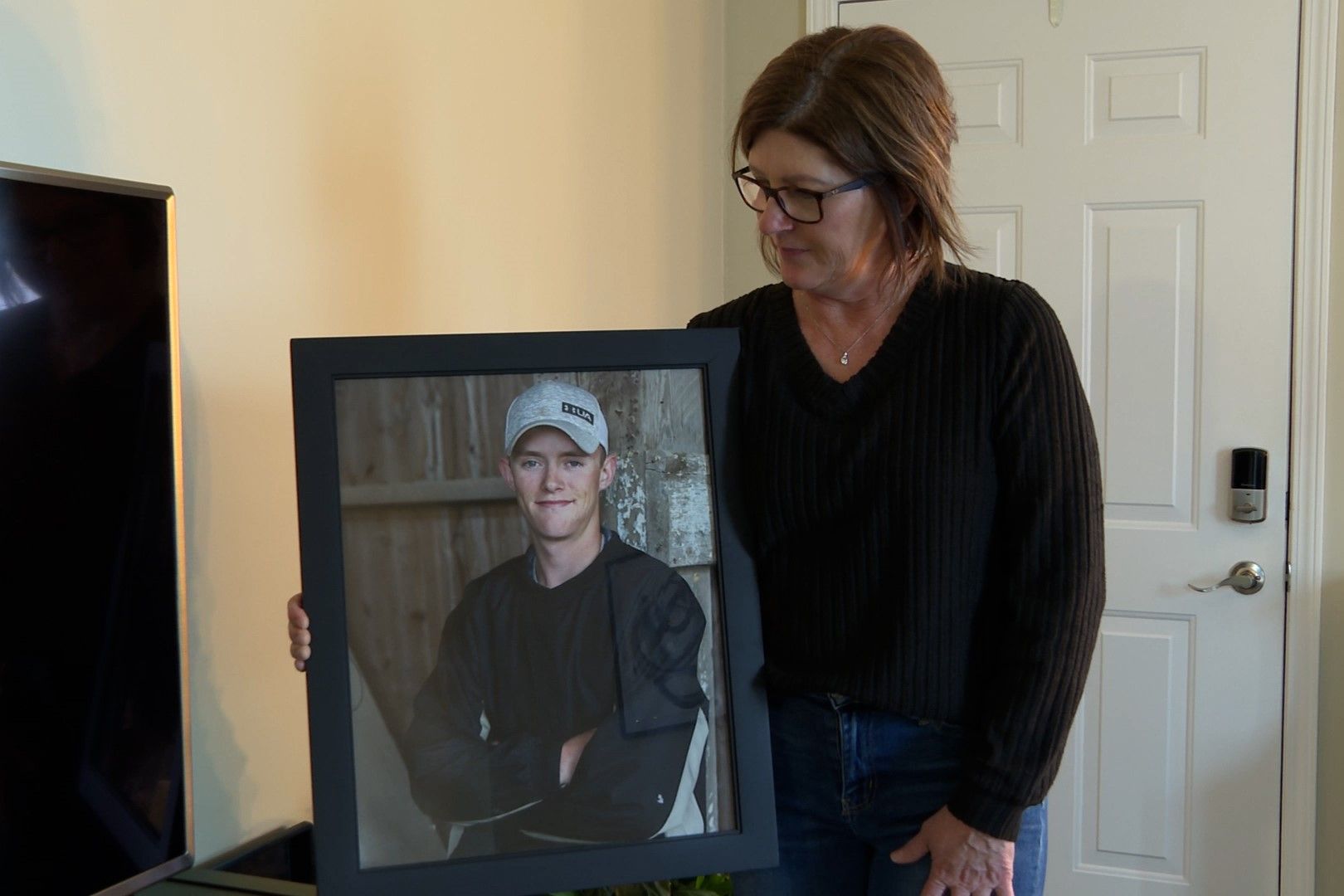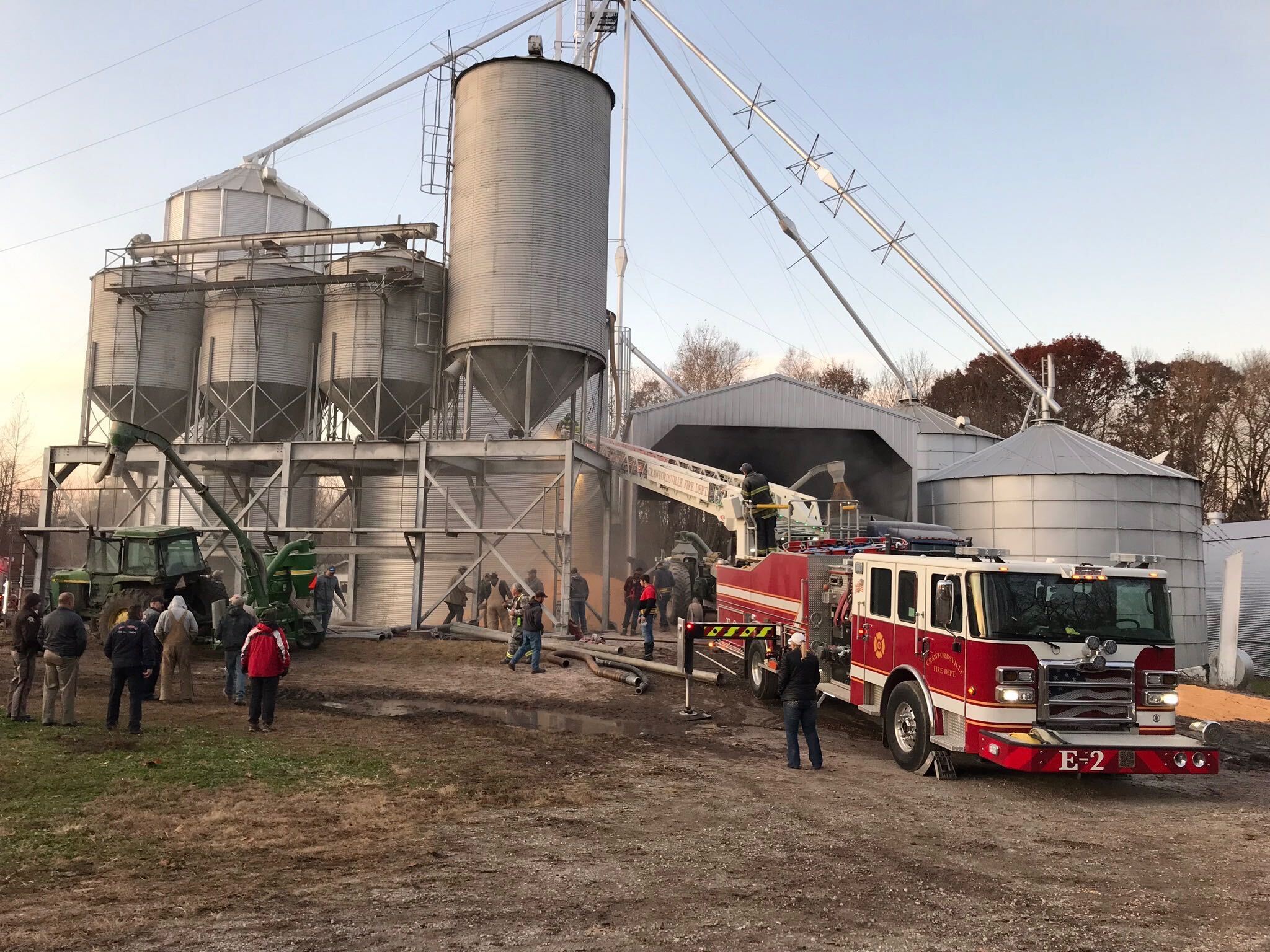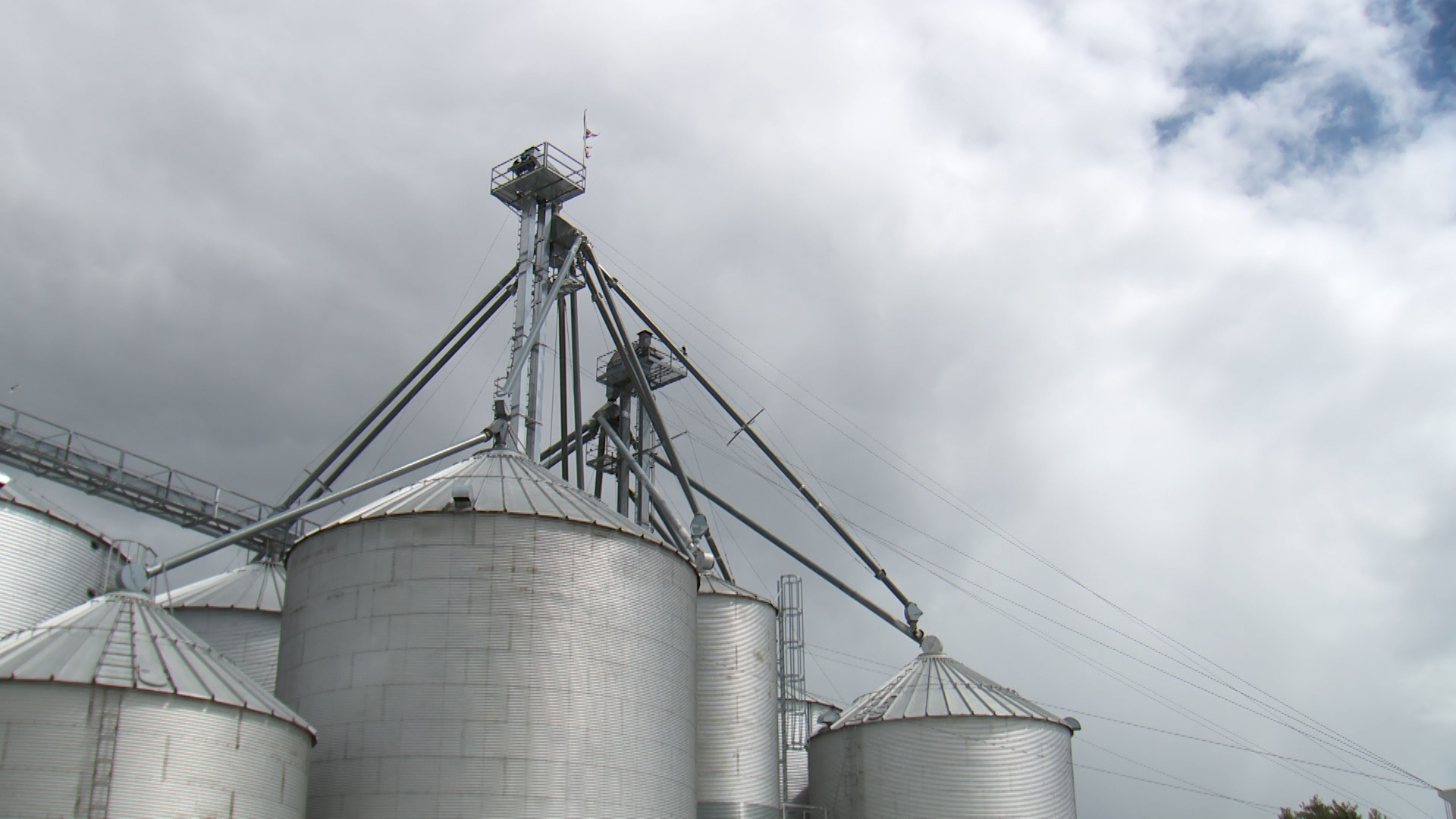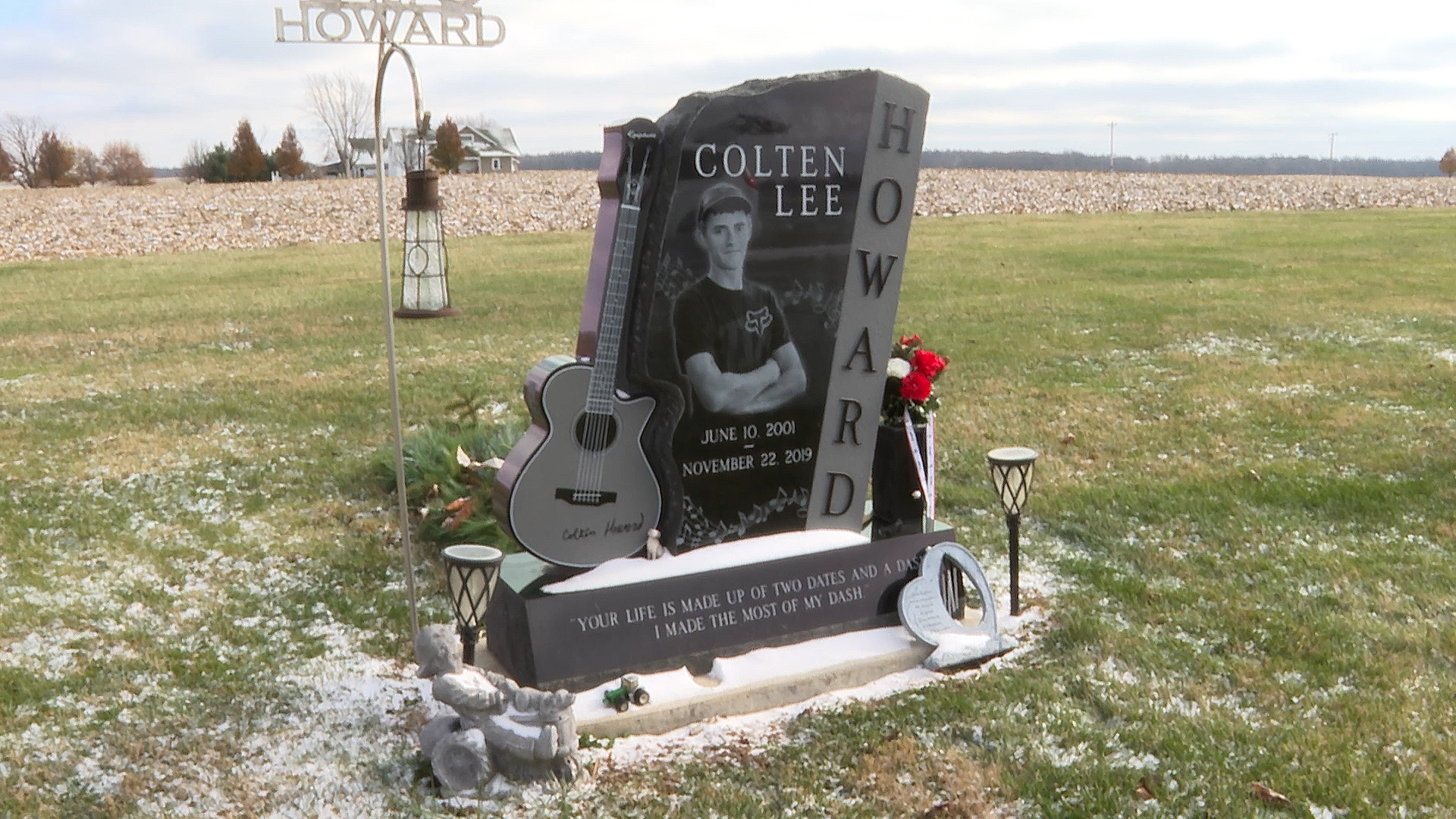
Anita Howard holding a photo of her son Colten. (Lauren Tucker/WTIU News)
On a bitter cold morning last month in Waveland, Anita Howard did something no parent should have to endure. She visited her son’s grave.
“He loved to be outside,” she said, smiling. “He loved to hunt. He loved to fish. To be with his friends. He loved to joke around. He was just an all-around good country boy.”
In 2019, her 18-year-old son Colten was employed by a local farm. He tended to fields, operated equipment, and worked around grain bins at harvest time. On Nov. 22 of that year, Anita heard the tragic news.
“I received a call from Colten’s employer that that he was missing, and they thought that he may be inside the bin,” she said.
She raced to the site where emergency vehicles were already on the scene. It was there that Anita’s world shattered.
“He had gone to the top to look in, and that was basically the last time that he was seen,” she said. “So I can only imagine that there was, you know, that it was clogged. They were trying to take grain out, and that he went inside. I'll never know.”

Colten’s story is one of 39 grain bin deaths that occurred nationally in 2019. Since then, the number of what the industry calls “confined space emergencies” increased, but the number of deaths has slightly decreased.
In 2022, there were 55 cases of confined space emergencies nationally, with 29 fatalities.
Most recently, a man in Lake County, Ind., became trapped in a grain silo on Dec. 4, 2024, and died despite a four-hour rescue effort.
Since Colten’s passing, his mother has worked to reduce the number of tragedies.
“Shortly after Colten passed, I started doing a lot of research on grain bin safety, grain bin accidents,” she said. “I didn't know anything about it, so I learned a lot about it, and it became my mission to save a life.”
Read more: Bill on reducing lieutenant governor's agricultural duties introduced
She also set up the Colten Howard Memorial Fund to donate specialized rescue equipment to fire departments around the state.
“Currently, we're up to about $40,000 worth of equipment, and it's mainly going out to rural fire departments where you know the funding is just not there,” she said.
Between 2022 and 2024, the fund donated equipment to 23 departments, including some in Vigo, Johnson, and Bartholomew counties.
According to Ed Sheldon, agricultural safety specialist at Purdue University, people enter grain bins when grain becomes clumped and needs to be broken up so the loosened grain can unload.
“A lot of the time we can trace that all the way back to the fact that there's probably grain that's out of condition, perhaps moldy, had gotten wet, was stored wet, and it gets clumped up or clogged up,” he said.

When a person breaks up clumps, the disruption can trigger suction-like action and a loss of footing. Entrapment happens quickly.
“Within a few seconds you can be buried up to your knees,” Sheldon said. “And essentially, once you do your knees, there's no getting out. And as long as that flow continues, you know, there's no stopping it.”
For years, Purdue Extension and OSHA have urged education on safety procedures as the best way to prevent tragedies. Purdue has also focused on preventing the original cause of clumping — excess moisture in the bins.
In years with more rain than usual, or more humidity in the air, it is more likely clumps of wet grain will form in the bin.
“That grain is never going to get better than the day you put it in there,” Sheldon said. “So the better condition you can have it in the bin, and maintain it that way, the less chance you're going to have to go in there and grub around.”
Other prevention measures include using a lifeline attached to the person entering the grain bin and never entering a bin without a partner to watch.

The emergencies are difficult to document. OSHA does have rules in place for properly working on or around grain bins. But farms with 10 employees or fewer, such as the one Colten worked at, are not subject to OSHA regulations.
“It makes it a challenge for us as we research these type of incidents, because there's no reporting requirements,” he said. “Most of our data about these incidents that occur on private farms comes from newspaper articles.”
Colten’s mother Anita hopes to continue raising money and awareness on how to prevent grain bin deaths.
“Make sure you have a lifeline,” she said. “Make sure you have somebody with you. Make sure the auger is not on. Make sure it's locked out, tagged out. … Colten should be here today, would be here today, had he stopped and thought before he acted.”
Read more: New head of Indiana natural resources aims to make regulations more friendly to business











